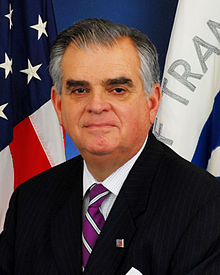The Massachusetts Institute of Technology (MIT), Cambridge, MA, announced its Engineering Systems Division Center for Transportation & Logistics (CTL) will lead the U.S. Department of Transportation Research & Innovative Technology Administration (RITA) University Transportation Center for the New England Region.
The University Transportation Centers Program strives to advance research and education programs that address critical transportation challenges facing our nation. The UTCs, which are located throughout the United States, conduct research that directly supports the priorities of the U.S. Department of Transportation, and the participating universities are a critical part of the nation’s transportation strategy.

U.S. Transportation Secretary Ray LaHood says the two-year $3.5 million grant funds transportation and education programs at MIT and its regional partners that include the University of Connecticut, Harvard University, and the Universities of Maine and Massachusetts. CTL director Joseph Coughlin, also director of the AgeLab, led the proposal and is principal investigator of the grant establishing the New England University Transportation Center.
This award is the result of a competitive selection process,” says Coughlin. “Our consortium’s success is a testament to MIT and its regional partners’ decades of achievement in transportation.”
Coughlin says the grant will support surface transportation research and education projects in the area of safety and livable communities with special attention given to the role of new technologies and disadvantaged populations such as the elderly.
MIT will work with each of the consortium’s partner universities to develop regional expertise while providing national leadership in transportation safety and community mobility. Each of the universities will collaborate to create a network of regional living laboratories that will serve as platforms for research and education. MIT will begin developing the foundations for a living laboratory around Massachusetts Avenue to better understand individual travel behaviors, multimodal traffic management, creative approaches to the built environment and the potential of intelligent systems to improve safety and accessibility.
Coughlin noted that the development of these living mobility laboratories and the overall success of the New England Center will require strong partnerships between the consortium’s researchers, government, industry, as well as non-profits, and added that he looks forward to the new center becoming a catalyst for innovation and national leadership.
